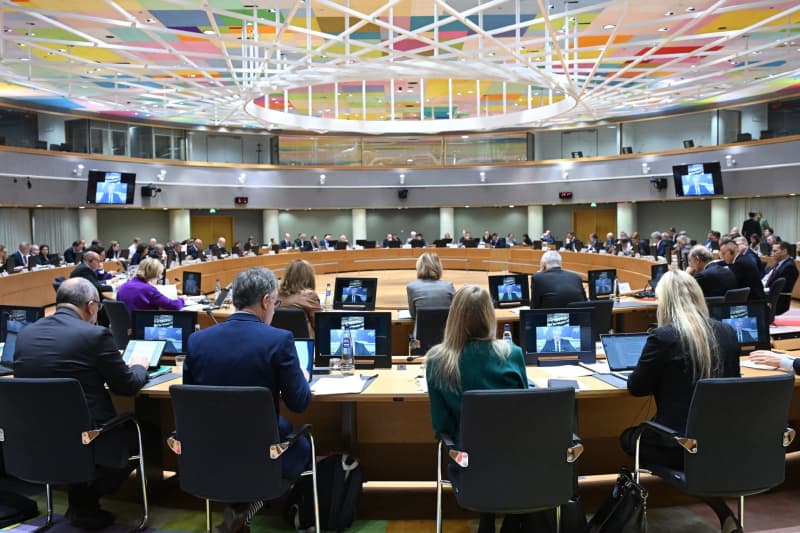On Monday, the European Union took a significant step in geopolitics by imposing sanctions targeting individuals and organizations believed to be involved in Russia’s attempts to interfere in foreign affairs. This marks the EU’s first punitive measure addressing Russia’s behavior outside its borders. According to an official press release from the EU, these sanctions are a direct reaction to what they termed “malicious actions” by Russia, highlighting the country’s disregard for a rules-based international order and adherence to international law. The EU’s decision is framed not merely as a punitive measure, but as a defense of its core values, stability, and integrity against a backdrop of hybrid threats that compromise security both within the EU and in third countries.
The sanctions specifically focus on various entities and individuals linked to the Russian military intelligence agency, widely recognized for its alleged involvement in numerous destabilization activities across Europe, including bombings, cyberattacks, and assassinations. The EU’s measures particularly emphasize the importance of addressing hybrid threats, which encompass a combination of traditional military tactics with non-military methods such as disinformation campaigns and cyber warfare. By targeting a specific unit within the intelligence agency, the EU aims to disrupt these harmful operations and to send a strong message about its commitment to defending democratic principles against foreign incursions.
Among the individuals targeted by the sanctions are those implicated in a notable intelligence operation against Germany’s Federal Intelligence Service (BND), where sensitive information was reportedly transferred to Russia’s Federal Security Service (FSB). This incident exemplifies the broader concern within the EU regarding the security of its member states and the protection of their intelligence apparatus against foreign interference. The sanctions aim not only to penalize those directly involved in this operation but also to deter future actions that threaten the stability and security of EU countries.
In addition to focusing on European-centric threats, the sanctions extend to Russia’s activities in Africa, specifically towards the Wagner Group—the paramilitary organization known for its controversial involvement in various armed conflicts across the continent. The EU has identified Artem Kureev, who has succeeded the late Yevgeny Prigozhin as the leader of Wagner in Africa, as one of the key figures of concern due to his role in advancing Russian interests in the region. The sanctions also incorporate actions against disinformation networks operating in Africa, signaling the EU’s intention to counteract Russia’s influence as it seeks to exploit divisions and foster instability on the continent.
The punitive sanctions adopted by the EU entail asset freezes for the identified individuals and organizations, along with travel bans that will hinder their ability to operate freely within EU territories. These measures are vital not only for holding accountable those directly responsible for violating international norms but also for deterring others who might consider engaging in similar disruptive activities in the future. By imposing these strict penalties, the EU reasserts its position as a defender of the rules-based international order and underscores the significance of collective security in the face of external threats.
In summary, the EU’s recent sanctions against Russia highlight a determined response to foreign interference that threatens both the security of its member states and the broader international order. This decisive action is indicative of a nuanced understanding of contemporary security challenges that blend traditional military threats with sophisticated hybrid tactics such as disinformation and cyber operations. The measures not only aim to address immediate concerns but also to safeguard the integrity and stability of both European and global institutions in a landscape increasingly characterized by aggressive geopolitical maneuvering from Russia and other actors.

